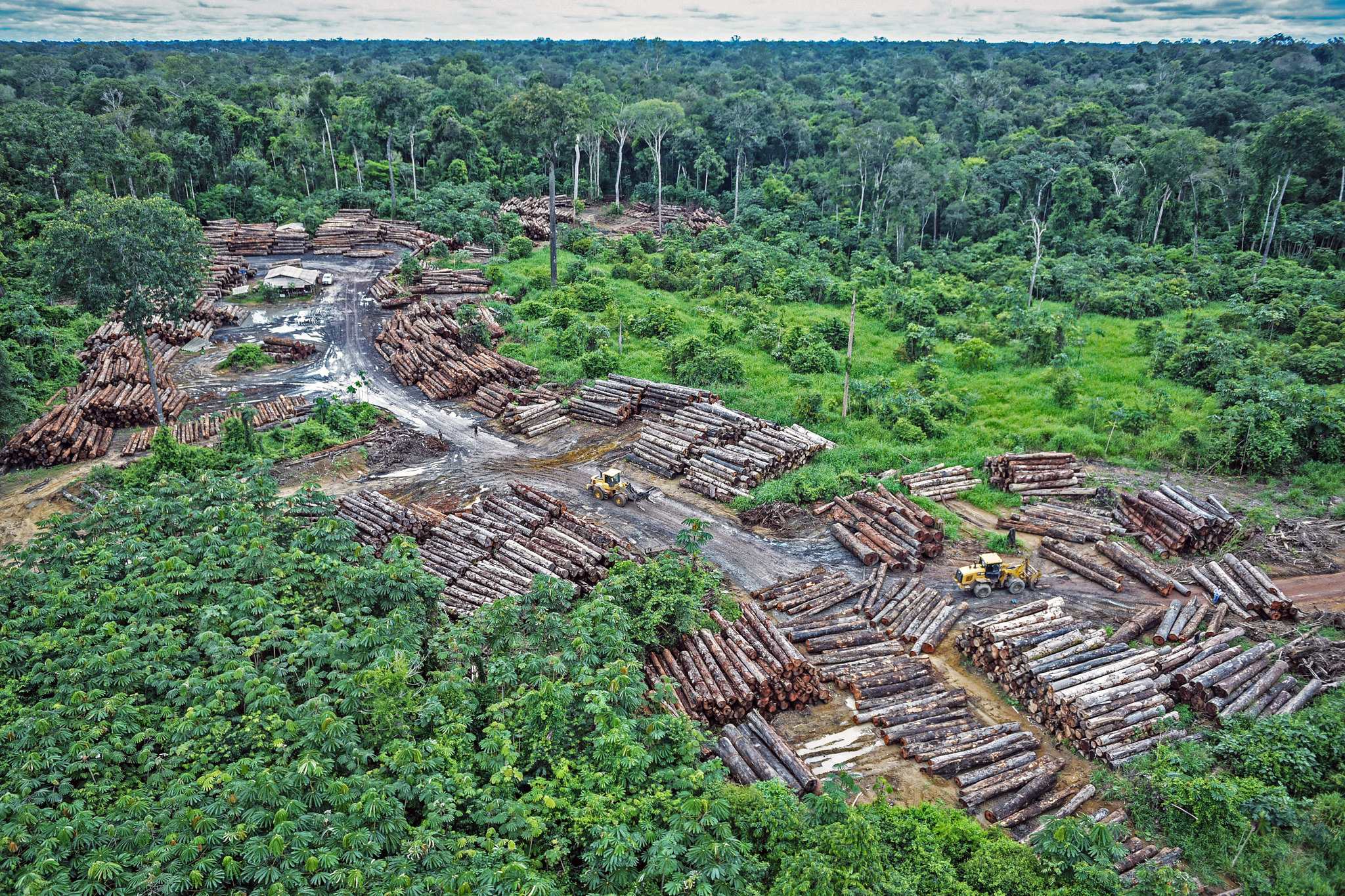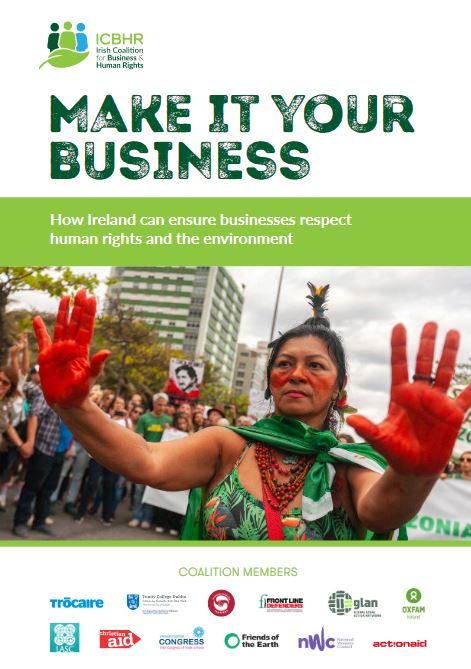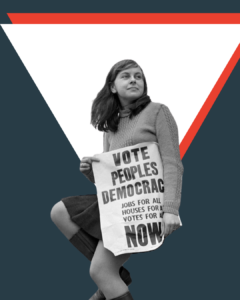Illegal logging on Pirititi indigenous Amazon lands, Brazil, with a repository of round logs on May 8, 2018. Photo: Felipe Werneck/Ibama via Flickr via AP
Anyone who wades into discussions on the topic of business and human rights should heed the following warning: Be ready for explosive and open-ended debates with a group who expect a chance to explore critical actions that students (and teachers) can take…in an hour.
This was one of the many happenings I had during a lively exchange on these topics (and their implications) during a workshop I was involved in with members of the Politics and Society Teachers Association of Ireland (PASTAI) in December.
The session acted as many things – a space to talk the issues out; a place for questions about where the discussions on business and human rights from Ireland are going and who is involved in them today; and as a sounding board to jot notes of recommended readings and entry points for teaching and exploring corporate accountability in a post primary context.
This 6-point guide is based on these interactions and shared here for onward use (and expanding!). Thanks to the teachers and to PASTAI members for their interest and lively engagement in inspiring this short guide.
1. Look to campaigns, voices and stories led by individuals and groups that took on corporate power and practices.
Did they succeed? Explore a selection of objects from the online exhibition Irish Global Solidarity in 100 Objects:
- Shop, sleep, trash, repeat – the Fashion Revolution Campaign Stencil from the Redress campaign
- Kit-Kats – Launched in the 1930s, the shape of the Kit Kat remains the same with its signature four finger crisp wafers. What goes on under the wrapper, however, has been the site of fierce debate, scrutiny and struggle.
- What’s the true cost of big business when left unchecked? Take a look at Sonia Haccius’ Massive Clearance shopping trolly installation produced with Trócaire that confronts issues of consumption, land clearances and the impact on human rights defenders in Guatemala
- Comedian and campaigner Mark Thomas, Irish NGO Afri, Sr. Barbara Raftery and students from Scoil Chriost Ri Portlaoise collaborated in developing a Channel 4 Dispatches documentary to highlight the inconsistencies, loopholes and legal omissions that enable virtually anyone, anywhere to broker and purchase ‘illegal’ arms. Meet the After School Arms Club.
- The Control of Economic Activities (Occupied Territories) Bill 2018 is a piece of proposed legislation, put forward by Senator Frances Black and calls for the banning of import or selling of goods or services originating in an occupied territory; or of the extraction of resources from an occupied territory in certain circumstances. If enacted, for example, it could ban trade between Ireland and Israel’s illegal settlements in the West Bank. Read the Bill and explore the issues further – why has the Bill not progressed? What exactly is the Bill proposing? What is ActionAid’s recent petition calling for?)
For more supports take a look at the teaching materials developed to support educational engagement on the exhibition.
2. Explore the links between health, equality and medicines.
Watch the video Race Against Covid-19, launched by the People’s Vaccine Alliance and explore the claim that suggests ‘greed’ and ‘capitalism’ are the reason for the success of global vaccine research.
3. Track the latest in collaborative campaigning
The Irish Coalition for Business and Human Rights is campaigning for new corporate accountability legislation to prevent abuses by making Irish-based companies accountable for a range of corporate human rights violations including forced labour, land grabs, attacks on human rights defenders, violence against women and denial of people’s fundamental rights at work.
Explore their findings about companies and corporations based in Ireland and tracking their practices overseas through their ‘Global Impact of Corporate Harm’ map and summary stats (an excellent report, titled Make It your Business).
4. What’s procurement got to do with it?
Quite a lot, actually. Many institutions, such as companies, schools, school networks, colleges, local government departments procure goods and services. But have social, environmental and human rights considerations been given as much treatment or taken as seriously as governance and finance assessments?
Here’s a poster set of three ‘calls to action’ for procurement officers to adopt sustainable procurement standards (ISO 20400), developed by 80:20 Educating and Acting for a Better World.
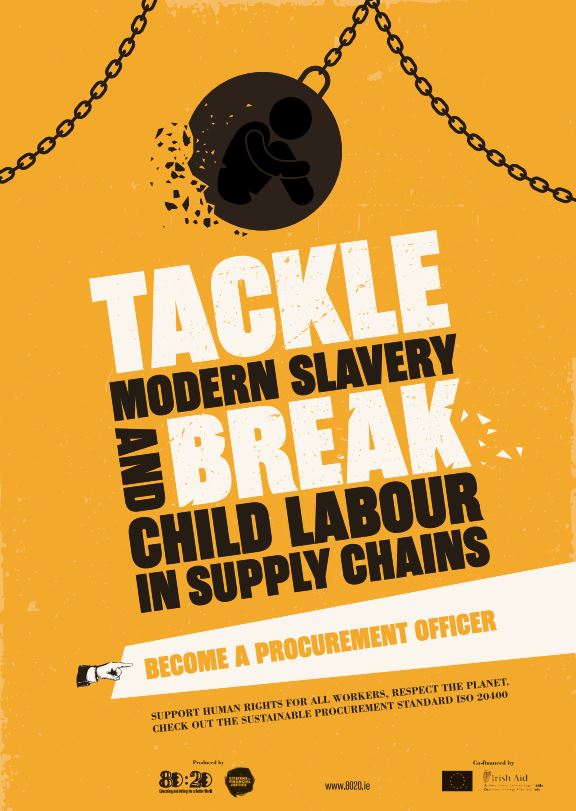
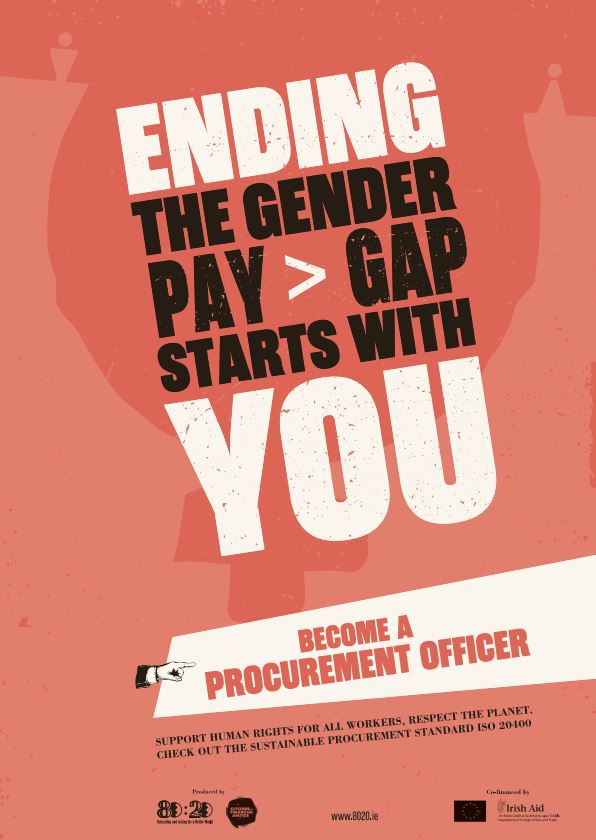
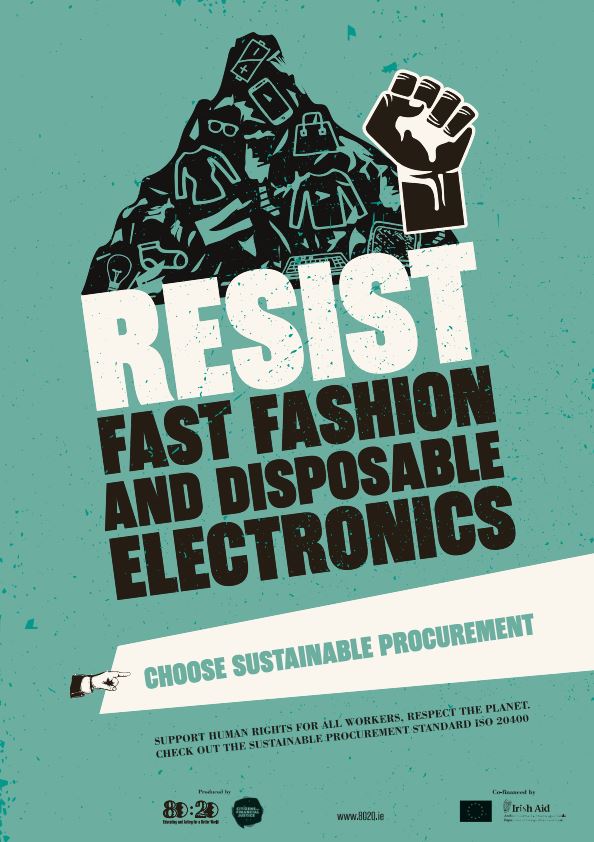
5. Chocolate, choice and child labour
Explore a live issue up close, based on a landmark research report on the industry – and the challenges. Share this student-friendly summary by Colm Regan for teachers and educators with key ideas, debates and activities relating to the chocolate industry, ethical food production such as Fairtrade and the ongoing realities of child labour in the cocoa trade.
6. Review ‘report cards’
The UN human rights committee system is an active one, with meetings, reviews and the history of submissions made by NGOs, groups and individuals to each committee on a range of issues, including children’s rights. What committees are meeting this year? What reports were written about Ireland in recent years? Why not support your group to research and prepare their own submission to one of the committees?
- Check out youth-friendly materials developed by UNICEF on children’s rights.
- Explore report cards about Ireland from the UN on issues published by committees (known as ‘treaty bodies’) or check out reports on countries where companies from Ireland operate (and what NGOs or UN committees may have said about their impact).
- For background on the Convention on the Rights of the Child check out the Children’s Rights Alliance reference page.
- There are many other reference points on critically engaging the topic of business and human rights. Suggestions on updating this list (there are only 6 reference points here after all) are welcome!

